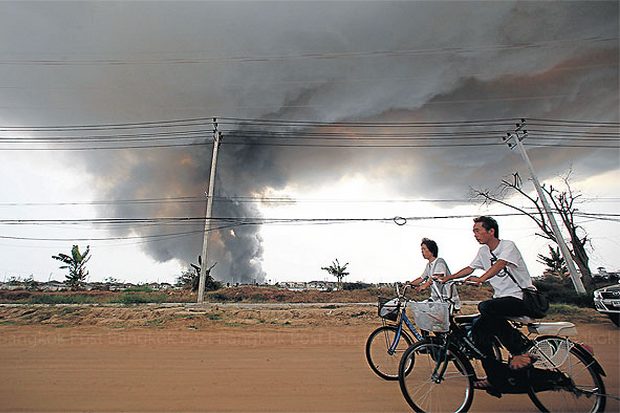
Around half of the 48 waste-to-energy plants proposed to the Pollution Control Department are unlikely to be funded, says the department's chief.
Initial studies of the proposed plants found at least half would not be feasible because there is not enough rubbish to supply them, Wichien Jungrungruang said. The amount of waste in some provinces is too little to keep the plants fed, but the provinces want to build them anyway.
Each waste-to-energy plant needs at least 300 tonnes of rubbish a day to meet energy demands, according to the department's study.
The effect on the environment and public reaction to the plants will also limit the number of proposals likely to be accepted, he said.
He said the plants must use advanced technology to limit unhealthy gas emissions which are a by-product of combustion.
All gases emitted to the air must be kept to a minimum in line with environmental health standards, he said. Currently, there are only two active waste-to-energy plants.
The plants are in Phuket and Songkhla provinces and generate around 25.7 megawatts of electricity.
Three power plants are under construction in Bangkok, Khon Kaen and Pattalung.
Among the 48 proposed plants are two in Ayutthaya and Rayong — which have received memorandums of understanding — and another in Lamphun which is undergoing a feasibility study.
The other 45 power plants are still at the discussion stage.
If all the projects are approved, there will be 53 waste-to-energy power plants nationwide, capable of generating 227.58 megawatts of electricity and consuming 26,000 tonnes of waste each day.
This means the plants could use up almost half of Thailand's 70,000-tonne daily rubbish production.
Each province has proposed its own waste management plan, with waste-to-energy plants included into some plans.
The Pollution Control Department has completed a five-year national waste management master plan, which needs over 8.9 billion baht to move forward.
The cabinet is expected to approve the plan next month.
The plan aims to deal with 30.83 million tonnes of accumulating rubbish nationwide, most of which is in six provinces with waste disposal crises.
These are Ayutthaya, Nakhon Pathom, Saraburi, Lop Buri, Pathum Thani and Samut Prakan provinces.
The department lists landfill management and relocating rubbish to new landfill sites as among its methods to tackle the crisis.
Bangkok, Nonthaburi, Samut Songkhram, Phrae and Phuket have no accumulating waste, Mr Wichien said.
Meanwhile, Chon Buri, Samut Prakan, Surat Thani, Nakhon Si Thammarat and Songkhla have over one million tonnes of accumulating waste each.